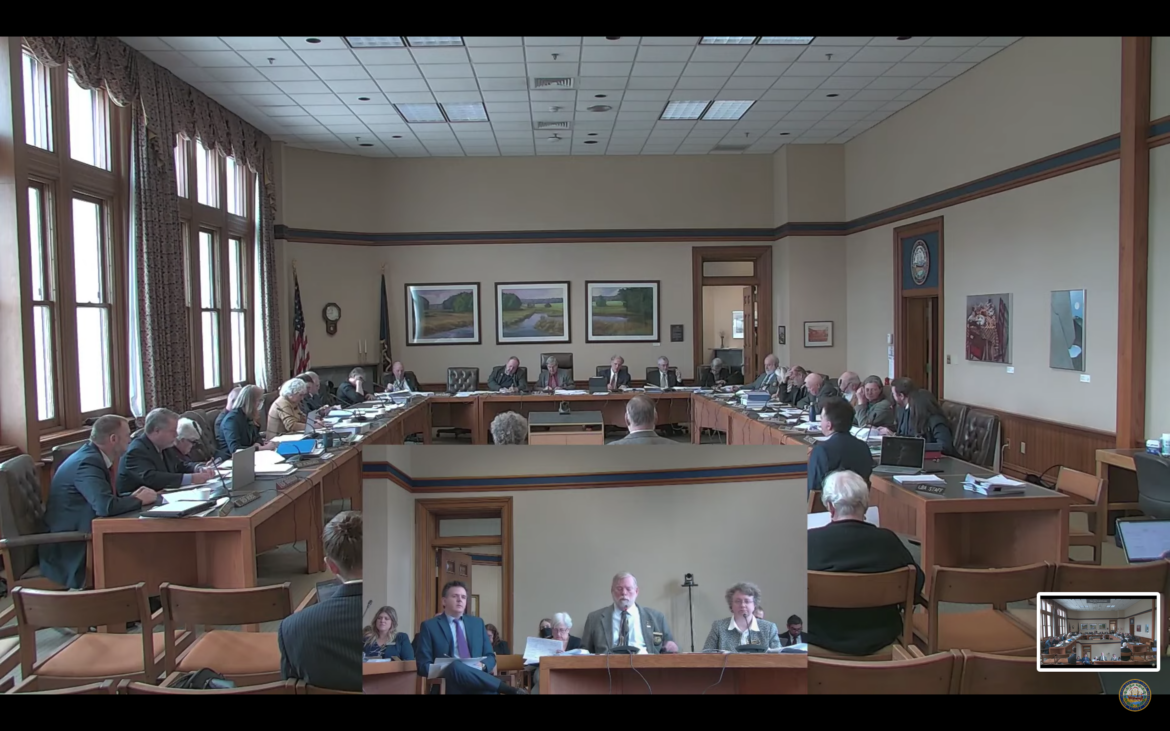By GARRY RAYNO, InDepthNH.org
CONCORD — The proposed House budget does not adequately fund group homes for delinquent children that are essential to closing the Sununu Youth Services Center, members of the House Finance Committee was told Tuesday.
The committee heard the last of its subcommittee reports, this one focusing on Health and Human Services.
The full committee meets Wednesday morning to take final votes on the budget it will present to the House, which will vote April 6 on the plan, the last day for House bills to “crossover” to the Senate.
The House and Senate have both passed bills this session that would allow the Sununu center to continue operating until a new facility is built that would incarcerate up to 18 young people, while those with lower level needs would be in group homes in or near their communities and schools.
Tuesday the finance committee reviewed its subcommittee’s proposal to provide about 60 percent of the money Health and Human Services officials said is needed to maintain the programs for 400 to 500 young people through the relatively new System of Care program.
The department awarded contracts for the homes, but they have been more expensive to run than the contracts provide for, former committee chair Rep. Mary Jane Wallner, D-Concord said, and without the right funding they are in danger of closing.
“This line is probably very low to accomplish what we need to accomplish,” she said, and noting the debate last week over the Sununu center, said “these are the kids that do not need the level of care of the Sununu center, but a lower level of care in the local community.”
Subcommittee chair Rep. Jess Edwards, R-Auburn, said the governor’s budget did not increase funding for the program, while the department sought $25 million in additional funding as a priority.
“We allocated 60 percent to try to take care of most of it,” he said, noting there is a question of how fast the system could absorb the additional $7.4 million a year.
Rep. Jerry Stringham, D-Lincoln, said without the full department request, there will be fewer beds than there are now.
Going forward the existing contracts will pay for fewer beds, or the legislature can dig deeper and provide more money, he said.
“Where we are now is a compromise between those two,” Stringham said.
Wallner said there will be problems during the biennium without a rate increase for the providers.
“These are 24-hour providers, it’s expensive and they have a hard time finding (workers),” she said. “This is the type of service you want for these children, not incarceration, and this keeps them in their own communities.”
“This is the place where we should be putting our money.”
Edwards said the committee could spend $25 million, but they had to find additional money to increase Medicaid reimbursement rates, which are also a problem.
Rep. Mary Hakken-Phillips, D-Hanover, said not fully funding the agency’s request will cause a spillover into the tertiary health care system across the state.
That system is currently teetering on the edge across the state and the nation, she said, and underfunding the system of care will dig a deeper hole that will cost far more to dig out from than just the system of care.
Hakken-Phillips noted there is a significant surplus coming at the end of this year, and some of that money ought to be used to address the problem.
The finance committee voted to accept what the subcommittee did to fund 60 percent of the department’s request on a 19-6 vote, and then voted 21-4 to accept the subcommittee’s work, which is the Health and Human Services budget for the biennium.
The Finance Committee meets at 10 a.m. Wednesday to take final votes on its proposed budget for the upcoming biennium.
Sununu proposed a $14.06 billion budget in total funds with $5.95 billion in general and education fund money.
The House Ways and Means Committee reduced the governor’s revenue estimates so the House budget will be somewhat smaller than the governor’s proposal.
The budget the governor proposed is about $1 billion more for the next biennium than the current biennial budget.
Garry Rayno may be reached at garry.rayno@yahoo.com.





